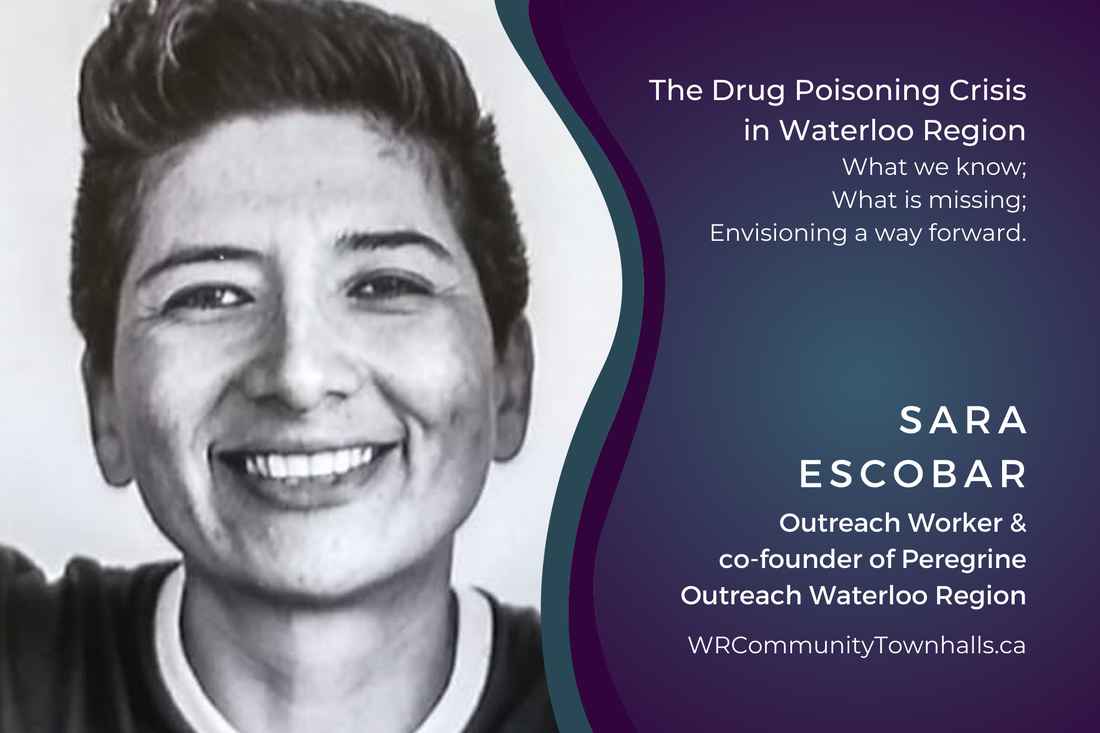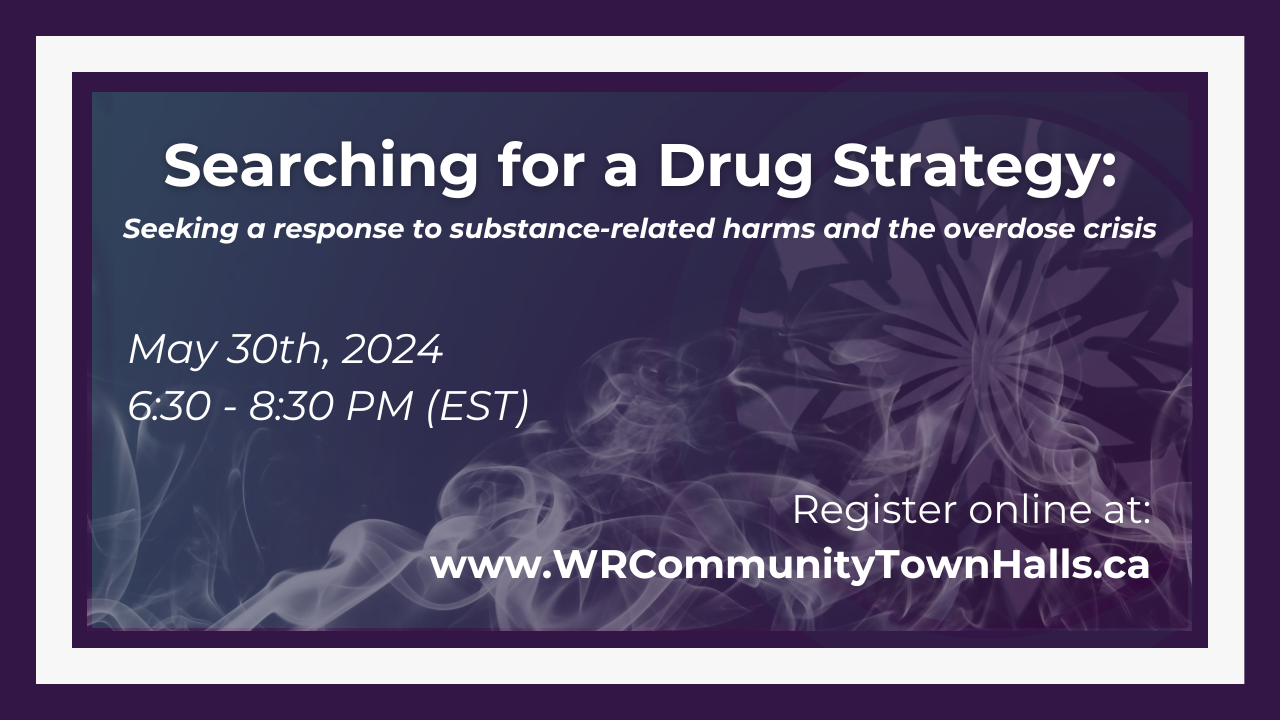Sara Escobar
Outreach Worker and co-founder of Peregrine Outreach Waterloo Region
|
Sara Escobar has been in Social Justice Work for 25 years and is currently a member of the Waterloo Region Drug Action Team. As co-founder of Peregrine Outreach Waterloo Region (a network of care for the street-involved population and workers that support them), she has also worked for numerous local agencies such as OneROOF, The Working Centre, House of Friendship, The Cambridge Food Bank and most recently at Porch Light Counselling. Through many years of supporting members of our community, she has witnessed how current decision-making practices and policies, when implemented without input from those with lived experience, cause harm to everyone in the community, not just those who use drugs.
|
Presentation
|
|
On June 1st, 2023 host Regional Councillor Rob Deutschmann held this virtual conversation focused on Waterloo Region's drug-related crisis.
Expert guest speakers, including Sara Escobar, outlined key aspects of the drug poisoning crisis we face in Waterloo Region, opportunities to improve our local prevention and response measures, and their visions for a safer and healthier community. |
Sara Escobar, a member of the Waterloo Region Drug Action Team and co-founder of Peregrine Outreach Waterloo Region, spoke next at the event. Sara acknowledged the difficulty of the conversation, noting that many present have had close experiences with death. She mentions that the individuals they have known and lost are not just statistics, but real people. She touches on the issue of community members self-medicating due to various forms of pain and how this puts them at risk of both intentional and unintentional drug poisoning.
Sara then shares a quote from frontline workers: "We aren't burned out. We are heartbroken and angry." She criticizes the dismissive attitude of the wider society towards this crisis and suggests that individuals are often self-soothing and seeking safety where they are not provided for. She emphasizes the importance of understanding people's behaviours and the need for solidarity in their communities. In terms of addressing the issue, she mentions that good intentions and conversations are often undermined by practical implementation, where compromises are made in favour of faster and cheaper solutions. These compromises are leading to more harm and perpetuating the cycle of necropolitics where decisions cause more harm than good.
She criticizes the unrealistic expectations placed on frontline workers to work quickly and cheaply, arguing that this has resulted in workers having to leave parts of themselves behind as they cannot fully engage with their tasks due to time and resource constraints. This leads to a level of spiritual pain as they cannot fully connect with the people they are trying to help, leaving unresolved grief.
Sara suggests that more should be done to look after frontline workers, by integrating self-care, debriefing, and extra mental health days into policies, and that trust should be fostered within teams.
She talks about the real pain and trauma that people are experiencing but suggests the focus should be on addressing the oppressive systems rather than just the symptoms of trauma and depression. She finishes by repeating that frontline workers are heartbroken and angry about the larger system and demands recognition for the difficult experiences they have on the ground.
Takeaways
- Acknowledge the deep emotional impact and spiritual pain that frontline workers are experiencing.
- The current approach to addressing crises often includes quick, cheap, and compromised solutions. This causes more harm than relief and requires systemic change to address the root causes of the issues rather than just the symptoms.
- Provide genuine support to frontline workers, going beyond intentions and must tangibly improve the working conditions for those directly addressing crises.



